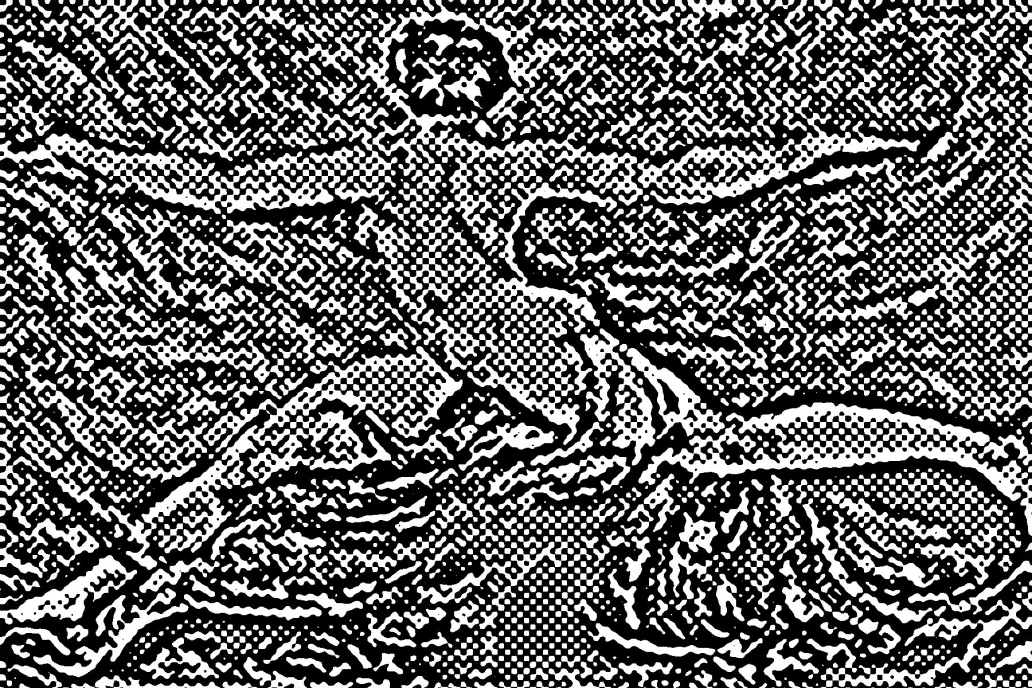
Ritual sacrifice was the original proof of work.
By publicly destroying something useful, a person credibly broadcasts his belief in something beyond the present world.
By proving his faith, he signals to others that he can be trusted to cooperate, although only with those who are willing to make the same sacrifice.
Thus, sacrifice is bonding. It fuses the sacrificers into a group, unified by a belief that transcends the worldly order.
The sacrifice proves that the sacrificer believes in the higher order because sacrifice makes no sense within the worldly order; to human rationality, it is strictly stupid. The only reason one would sacrifice is if one believes that it matters on a plane beyond ours. Because it's costly, it's credible.
Given the power to unify and excite, sacrifice enjoys a contagious quality: Who would not want to join a group demonstrably unified by a higher order, intoxicated with the divine, and inaccessible to those unwilling to make the sacrifice?
The fusing, contagious, and divine nature of sacrifice is reflected in its close cousin, the festival.
Typically coinciding with sacrifice, the pre-modern festival was a scheduled and limited suspension of prohibitions and social distinctions. Sacrifice is so disruptive of worldly order that the energy it unleashes must be given time and space, but it also must be carefully contained, with specified rules and duration.
The philosopher Georges Bataille (1897-1962) believed that sacrifice and festival made society possible. Without them, a group of people cannot know itself as a cohesive whole. As he puts it in Theory of Religion (1992):
"The festival assembles men whom the consumption of the contagious offering (communion) opens up to a conflagration, but one that is limited by a countervailing prudence: there is an aspiration for destruction that breaks out in the festival, but there is a conservative prudence that regulates and limits it."
The exuberance of sacrificial intimacy reveals, through contrast, that profane society is anything at all. It is through festival that society first appears to itself as a distinct entity, which exists in time, punctuated by seasons, defined by certain limits, and possessing a shared orientation to the future:
"...the community first appears in the festival as a thing, a definite individualization and a shared project with a view to duration."
Proof-of-work blockchains harness the anthropology of sacrifice. By spending compute on meaningless puzzles, miners credibly broadcast their faith in the system. Though the blockchain is not God, miners take a leap of faith—that their sacrificial offering will be worth something, even though it's meaningless on the worldly plane beneath the system. A proof-of-work blockchain is therefore a festival: sacrificial exuberance regulated by conservative prudence.
As our secular society has just about vanquished sacrifice and the sacred, social cohesion is plummeting, as Bataille's theory would predict.
When a society loses its faith, it loses its future, in a technical sense: Without festival, there is only one, never-ending season.
Every man is now responsible for fashioning—or finding—systems worthy of sacrifice.
This is why we sometimes say Nockchain is performance art, yet a third name for proof of work. All three terms refer to the same general mechanism, which is more widely applicable than one might think.
